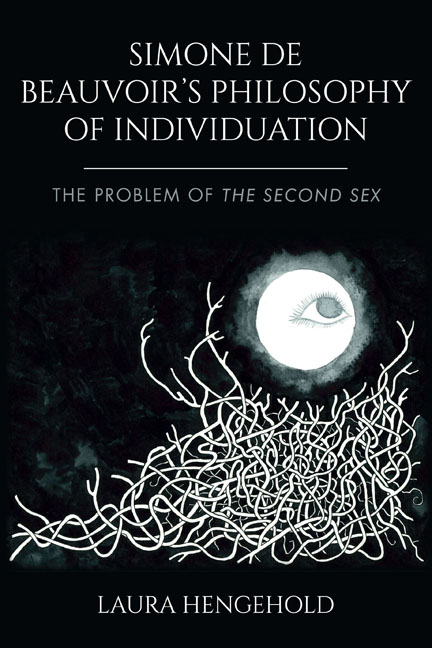1 - Introduction: Blocked Singularities
Published online by Cambridge University Press: 23 June 2018
Summary
‘One is not born, but rather becomes, woman’ (SS 283/2:13). ‘On ne naît pas femme, on le devient.’ Simone de Beauvoir's statement puts becoming at the heart of her ontology. However, we tend to focus on what becoming a woman might mean, taking the meaning of becoming as self-evident. We are not born philosophers either, and just as womanhood may be something we never actually achieve, becoming a philosopher is not something that happens once and for all. A focus on becoming unsettles even our confidence as to what ‘being born’ might mean.
Concepts are points of passage for becoming. Concepts may name discrete entities such as pianos or musical notes. But pianos are occasions for notes to repeat themselves from one concert or chord to the next, while the memory and desire for music encourage the continual movement of people and instruments around the globe. Pianos also take time to be built and to be tuned so that they are more than mute pieces of furniture, and they break down if left unused or untended. Those becoming philosophers are the people who can't help but notice that just as notes blend into one another and objects gradually shift from one category to another, acting back on the other things they encounter, concepts themselves change colour and meaning depending on the light and on their environment. But unlike a piano, or even the concept of piano, which might belong to a particular technological era and vanish with it, philosophical concepts have an intemporal capacity to enter and slip out of any historical milieu.
Along with discrete bodies, buildings, words, or emotions, wegrapple with the continual change, modulation, or interruption of environments and media, even the media of our own physiology and language. Whether or not humankind is the measure of all things, one's choice of a measure is shaped by the quality of one's encounter with the given.
- Type
- Chapter
- Information
- Simone de Beauvoir's Philosophy of IndividuationThe Problem of The Second Sex, pp. 1 - 24Publisher: Edinburgh University PressPrint publication year: 2017



